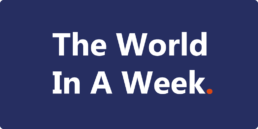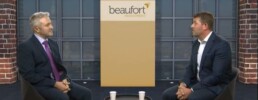Beaufort Analysis No. 303 - Declarations of (Monetary) Independence
The world’s rate-setters are on manoeuvres. After a decade of unorthodox monetary policy involving rock-bottom policy rates, quantitative easing and, in the case of Japan, intervention in the stock market; central banks are looking to roll back these measures and begin shrinking their balance sheets. As a result of the measures employed to ward off another Great Depression, the role of central banks and the impact of their actions has come under increased scrutiny, prompting a renewed focus by their leaders on the importance of maintaining central bank independence, free from political interference.
In the US, gradually increasing interest rates and tighter global monetary conditions have been the principal cause of the pull back in the equity market we have witnessed in the past few weeks, with the S&P 500 down -8.8% and the MSCI ACWI Global Equity Index falling -7.8% for the month to date (both in local currency terms). This deceleration of market momentum does not chime with the desired narrative of the current resident of 1600 Pennsylvania Avenue, resulting in direct criticism of Chairman Powell by the President in an interview with the Wall Street Journal. This led to Powell needing to build support in Congress to defend the independence of the central bank.
In Europe, at the meeting of the ECB last Thursday, Mario Draghi expressed his confidence in the Eurozone’s “broad-based economic expansion” and committed to ending QE at the end of this year, while keeping rates at historic lows until next year. Draghi also felt the need to emphasise the importance of central bank independence calling it a “precious thing, essential for the credibility of central banks”. Draghi also acknowledged the risks of waning economic momentum, protectionism and Brexit, but the Euro was broadly stable following the conclusion of the meeting.
The UK is an excellent example of why central bank independence matters to investors and economic stability more generally. Before the Bank of England was made independent following the Labour election victory in 1997, the setting of interest rates was highly politicised and elections influenced the timing and magnitude of rate changes. Removing this was hugely important for maintaining the credibility of the BoE with the markets, and over the period since independence inflation has been relatively low and stable. Economic outcomes like those witnessed by Turkey and Argentina are excellent examples of what happens when market participants stop believing that the central bank will do what it says it is going to do. With this in mind, when one recalls the Shadow Chancellor, John McDonnell, and his desire for a “people’s QE” it becomes apparent that threats to the independence of central banks reside neither in the past, nor on the far side of the Atlantic.
Quarterly update from Beaufort Investment
Beaufort Investment’s Head of Portfolio Construction & Research, Shane Balkham speaks to Brian Davies from Beaufort Financial (Westerham) about what’s happened in the markets over the last quarter, and how these changes have affected our portfolios.
https://www.youtube.com/watch?v=RFCKpivZrzY&feature=youtu.be
Beaufort Analysis No. 302 - Time after Time
Last week, China reported its slowest rate of growth since the Financial Crisis 10 years ago. The rate of growth was still a healthy 6.5% but this was lower than the expected 6.6%. It is, however, still on track for the Chinese government’s target of 6.5% for the year. By comparison, the UK’s 2018 GDP target is 1.4% and the US’s, 2.9%. This GDP data is the first data for China since President Trump applied his tariffs to $250bn of Chinese imports, however there are increasing domestic pressures that are likely behind the slower rate of growth. China’s debt burden is enormous, with a possible $6 trillion of debt hidden off the balance sheet by local governments to avoid Beijing’s lending limits. The growth figure was pulled down from the previous quarter due to a decline in domestic demand for cars, resulting in a fall in auto manufacturing.
Theresa May has stated that she is open to considering extending the post-Brexit transition period in order to resolve the Irish border issue. The Prime Minister has said it would only be for a few months whilst the budget payments to the EU and membership of the customs union would still apply during this time. Angela Merkel has now said that both the EU and the UK need more flexibility in their approach to not leave the only option to Northern Ireland a hard border. Over half a million people marched through London over the weekend in support of a new vote, the People’s Vote. But, after last week’s EU summit, it seems that a deal is no closer as the Irish border remains the sticking point.
A number of officials have dropped out of attending Saudi Arabia’s Future Investment Initiative over the killing of Jamal Khashoggi. These officials include Liam Fox, the UK’s International Trade Secretary, Steve Mnuchin, the US Treasury Secretary and Christine Lagarde, head of the International Monetary Fund. Fox Business Network and Goldman Sachs have also pulled out, with others urging BAE systems to also withdraw. Saudi Arabia is one of the largest nations for UK trade in the middle east, with 2016 exports from the UK, totalling over £6 billion.
As a week seems unable to pass without Donald Trump pulling the US from one deal or another, the US has withdrawn from its 1987 Nuclear treaty with Russia. President Trump claims that Russia has been violating the treaty for years, which Russia denied. Originally agreed by President Reagan towards the end of the Cold War, the treaty banned the use of medium-range ground launched missiles. Barack Obama previously criticised the treaty when he was President, however no action was taken due to pressure from other global leaders. This is seen to be a considerable setback for arms control globally.
Beaufort Analysis No. 301 - You can’t have your cake and eat it
Global markets have fallen over the last two weeks and given back much of the gains achieved this year. In the UK, both the FTSE 100 and 250 indices officially corrected by dropping more than 10% since their 52-week highs in May and June, respectively, falling in almost every trading session so far in October. The FTSE has now fallen below 7000 to a level first seen at the start of the Millennium. In the US last Wednesday, the Dow’s 830-point drop was its third largest ever, accompanied by falls in the S&P500 and the technology-weighted Nasdaq which fell 4% on the day. European, Asian and Japanese markets were not immune from the contagion.
The markets have shown more fragility since the Federal Reserve raised interest rates in September, but the aggressiveness of forthcoming rate rises to curb inflation have concerned investors over the cost of borrowing and the expected slowing of the economy. Rising bond yields have unnerved the equity market, with the 10-year Treasury yield now at a 7-year high. Higher interest rates typically bring on tighter financial conditions and rising bond yields could now be signalling the move from growth stocks with high valuations and lower dividends into previously unloved value stocks.
The International Monetary Fund (IMF) has downgraded its outlook for global growth, citing the ongoing trade wars, rising interest rates and instability in emerging markets. It has forecasted that growth will be 3.7% this year and next, down from 3.9%. The UK economy ground to a halt in August due to concerns over Brexit, but still registered 0.7% for the quarter, putting it on track to reach an annual growth rate of 1.5%. The IMF has urged the UK to lift public spending in the case of a full Brexit, saying that monetary policy should be flexible, implying lower interest rates; this contradicts the Bank of England’s view that rates would rise if there is a hard Brexit or no deal at all. EU leaders meet this week in what is expected to be a “moment of truth” for Brexit negotiations.
Finally, shares in cake shop and café, Patisserie Valerie, were suspended last week after accounting irregularities totalling £20m were discovered. The company, which has 206 outlets in the UK and employs around 3000 staff also received a winding-up petition against one of its subsidiaries in September, with HMRC seeking £1.4m in taxes. Finance Director Chris Marsh was arrested and suspended from duties. The company has been saved from collapse by loans of £20m from Chairman and major shareholder, Luke Johnson, the restaurant entrepreneur, with the icing on the cake being a further £15m from a raising of new shares.
Beaufort Analysis 300 - Stranger things
October is traditionally the scariest month of the year, as evenings start to get darker and days colder, our thoughts turn to the winter that is inevitably coming. The same can be said for the stock markets, as October has been historically one of the most volatile months of the year. The theory suggests that after a lull during the summer, when politicians, traders and analysts are on holiday, they return to either deliver significant rhetoric, to make major trades or to examine data. This causes the measure of volatility to jump, as the index lags a month, comparing September to August.
The volatility index spiked 30% on Thursday on the back of data from the US which showed the American economy was growing at an annualised rate of 4.2%, the strongest tally in almost four years. The strong second quarter growth figure was higher than consensus, although still in line with the way in which economists have expected the US economy to grow. The Federal Reserve commented that rates could be raised to levels that could restrain growth; Jerome Powell was confident that wage inflation showed no signs of the labour market overheating, even on the back of US unemployment falling to its lowest level since 1969.
This was not a surprise and consistent with the forward guidance that the US central bank has been giving us all year. We know when the next rate hike will be (December) and we know what the cycle of tightening interest rates will be next year (mostly likely three). However, this arguably good and fully expected news caused markets to over react and they are fearful that the Federal Reserve may tighten monetary policy faster than they have stated. We are back to bad news being good for the markets, as this slow monetary tightening, while good news could lead to an acceleration in the raising of interest rates. This is typical behaviour of a market adjusting from an accommodative phase that has endured for almost a decade and knowing that the end of the economic cycle is on the horizon.
We must remember that this normalisation of interest rates in the US is a sign that the economy is strong and that the new normal is not interest rates at 5%, but much closer to 3%. The same cannot be said of Turkey, whose annual rate of inflation hit 24.52% in September, its highest level for 15 years. This will undoubtedly put pressure on the Turkish central bank, which only last month raised interest rates to 24%, in an attempt try and prevent a deepening of its currency crisis.
Beaufort Analysis No. 299 - Deal or No Deal
In the UK, consumer confidence fell due to fears of a Brexit ‘no deal’ and the outlook for personal finances weakened which could indicate a slowdown in consumer spending in the lead up to the Brexit deadline, now only six months away. If the UK and EU were unable to reach a withdrawal agreement, there would be no 21-month transition period, which Theresa May is proposing, leading to consumers and businesses having to respond immediately to EU changes. Trade could suffer from increased tariffs resulting in higher prices for goods and delays at borders from heightened security checks. The legal status of EU workers in the UK, as well as Britons working in EU countries, would be unclear. Mark Carney, governor of the Bank of England, has also warned that house prices could fall by a third over three years leaving homeowners with negative equity and spiraling mortgage rates.
It was also announced last week, by the Office for National Statistics, that the UK economy grew by just 0.4% during the April to June quarter, bringing a revision to the annual growth rate of 1.2%. Exports tumbled and business investment slumped in the quarter in the latest sign the economy is failing to rebalance. Economic growth for the first half of 2018 was the weakest since 2011 and sterling fell on the news, giving back some of its recovery against the US dollar.
Last Wednesday, as widely expected, the US Federal Reserve raised interest rates by 25 basis points for the third time this year, bringing the federal funds rate to a target range of 2% to 2.25%. The move reflected an upbeat assessment by chair, Jerome Powell, who said this “gradual return to normal is helping to sustain this strong economy.” The federal funds rate is now at its highest since October 2008, just after the collapse of Lehman Brothers. Yet although the Committee voted unanimously for the rate increase, President Trump is not making their decision easy as the trade war threatens both to slow growth and boost inflation. It was suggested that the Fed will raise rates a further three times next year and once in 2020, to reach a level of around 3.4%.
Finally, the price of oil has risen 45% over the last twelve months and Brent Crude has eased past $80 a barrel for the first time in four years, notably caused by Iran’s recent drop in output due to US sanctions. A meeting in Algiers last weekend between Opec and non-Opec members, resulted in the decision to maintain the level of production due to current demand, despite calls from President Trump to increase it in order to lower prices.
Beaufort Analysis 298 - “War, what is it good for?”
UK inflation surprised to the upside hitting a 6-month high of 2.7% in August, exceeding economist expectations of 2.4%. Sterling rose on the back of this data, which was driven by an increase in prices for recreational goods, transport and clothing. This unexpected spike narrows the gap between inflation and wage growth; data for the 3-months to July showed wages, excluding bonuses grew by 2.9%. August earnings figures are not available until October, but we expect living standards will be squeezed over the medium-term.
Trade war hyperbole, predominantly from the US, rumbled on throughout the week. Trump announced further tariffs of $200bn on Chinese exports to the US with an implementation date of 24th September. Initially set at 10%, Trump announced that tariffs would rise further to 25% in January next year. The higher rate came as a surprise to economists and markets and was more severe than expected. China retaliated by announcing tariffs in the range of 5-10% on $60bn of US imports. This tit for tat trade spat had little effect on US markets, with the S&P hitting a new intra-week high.
On Friday, US markets were subject to quadruple witching. The quadruple witching phenomenon can cause increased trading volume and volatility in certain equity markets and is a term given to the expiration of futures and options, which occurs on the third Friday each quarter (March, June, September and December), on the same day, in the last hour of the trading session.
This week, the focus will be on the Federal Open Market Committee meeting and press conference with Chairman of the Federal Reserve, Jerome Powell; it is widely anticipated that the Fed Funds Rate will increase from 2% to 2.25%.
Beaufort Analysis 297 - “Should I stay or should I go?”
The pivotal point of the Global Financial Crisis was arguably the collapse of Lehman Brothers, which triggered the final throes of the financial state of emergency and with it, the nadir just six months later. This historic clash for the industry passed its 10th anniversary this weekend and while many lessons have been learned from the mistakes of the past, we hope markets and institutions alike are much better prepared for the next recession.
Continuity is key in navigating uncertainty. That is why we have seen an increase in volatility this year, as arguably the most influential central bank, the US Federal Reserve, had a change of leadership. The European Central Bank is also looking to change its president next year, which will be when their quantitative easing programme will have ended, .
With Brexit hitting the headlines daily and with just over six months until deadline day, it is natural that uncertainty is pushed to the fore. That is why continuity is important to the UK and the announcement that Mark Carney has agreed to a further extension to his tenure as governor of the Bank of England is good news.
Mr Carney originally increased his tenure from mid-2018 to mid-2019; this has been extended for a further year and while his family will return to Canada as originally planned in the second half of 2019, Mr Carney will remain in place until mid-2020. This will provide much needed stability during Brexit and having continuity of leadership for the Bank of England during a potentially turbulent period is critical for the UK economy.
Wasting no time in managing expectations with regards to the divorce from EU, Mark Carney delivered a chilling warning to Theresa May’s cabinet that a ‘no-deal Brexit’ could lead to economic chaos. The media promptly focused on the one point that would send a chill down the spine of most residents in the UK: that UK property prices could fall by a third. This worst-case scenario would be driven by rising unemployment, depressed economic growth, higher inflation and higher interest rates.
However, the brighter side of the coin is the output of the Chequers meeting, the prime minister’s blueprint for the UK’s post-Brexit relations with the EU. Under this scenario, governor Carney said the UK could expect an economic boost of £16 billion, as the UK would have more access to the European market than we do currently. This would allow the UK to recover most of the lost output from the 2016 referendum, which knocked around 1% off the size of the UK economy.
Having consistency in leadership will be critical in piloting Brexit, that is why Mark Carney’s agreement to remain as governor is a boost for Theresa May, who this week will be in Salzburg, as the first part of a trilogy of summits to an historic UK-EU agreement.
Emma Clarke is shortlisted again
Beaufort Investment’s senior analyst, Emma Clarke is a finalist in this year’s Women in Investment Awards, which recognise the achievements of women in the fund management industry.
At the inaugural awards last year Emma won the Fund Analyst of the Year category and she has been nominated in the Fund Selector of the Year category this time.
Executive Chairman of the Beaufort Group, said: “We are delighted that Emma has made the shortlist again this year and hope she repeats the success of last year. It is a testament to the strength of the firm that we attract such talented achievers and wish Emma the very best at the awards ceremony, which takes place in November.”




Beaufort Analysis No. 304 - Fireworks or damp squib?
Chancellor, Philip Hammond, delivered his Autumn Statement last Monday, which he claimed was a business-friendly budget with rates cuts for small retailers and a freeze on duty for beer, cider and spirits. He also increased the personal allowance to £12,500 and the higher tax rate threshold to £50,000; both to take effect from April next year. In a budget where he declared that austerity was coming to an end and in preparation of a ‘no-deal’ Brexit, he said public finances were in the best shape for many years and are forecast to improve, with borrowing in 2018 to be £11.6bn lower than previously forecast. Mr Hammond upgraded UK growth for 2019 to 1.6%, with expectations of 1.4% for the following two years. Additionally, the Chancellor declared a £30bn package to repair England’s roads and an increase in infrastructure spending to enable a further 650,000 homes to be built. He also announced a new digital services tax to come in to effect in 2020 to make global technology firms operating in the UK pay their fair share of tax.
The Bank of England indicated last week that interest rates could rise at a faster pace if the UK manages a smooth exit from the European Union. Although the Bank kept rates unchanged at 0.75%, its latest forecasts suggest they could rise to 1.5% over the next three years. Growth in loans and credit cards slowed to its weakest pace for three years and is now below its 20-year average pace, however total consumer debt still stands at a record £215bn. The Brexit uncertainty and the scaling back of lending by the high street banks are curbing consumer spending, and this has also slowed the housing market with average prices up just 1.6% year on year.
The stock market lost much of its spark in October due to political uncertainty, the continued trade wars and rising interest rates in the US, leading to the strengthening dollar. The S&P 500 Index in the US had its worst monthly performance since 2011, however, October is notoriously a volatile month in the markets and it looks, so far, that this correction could be a repeat of the one witnessed in February. After falling over 8% in value since the beginning of October, the FTSE 100 Index, along with most global indices, recovered some of its lost ground last week as tensions between the US and China abated with Presidents Trump and Xi Jinping looking to reach an agreement.